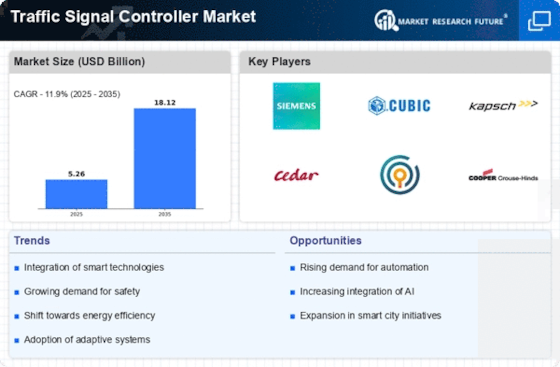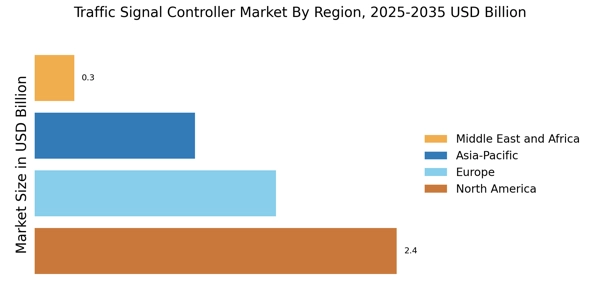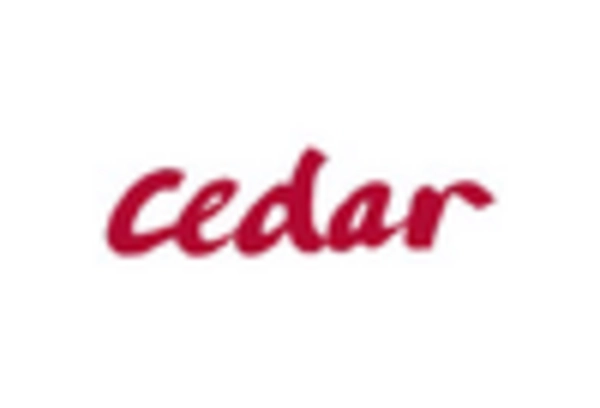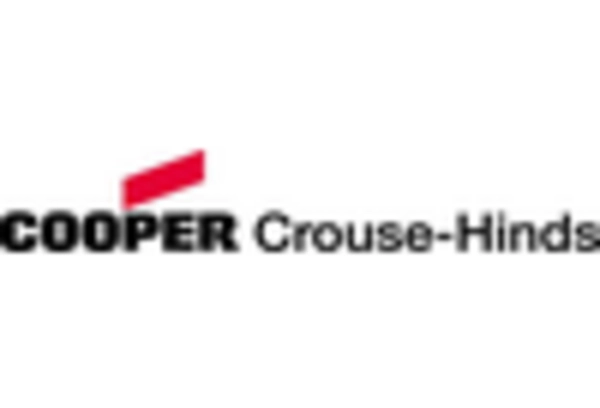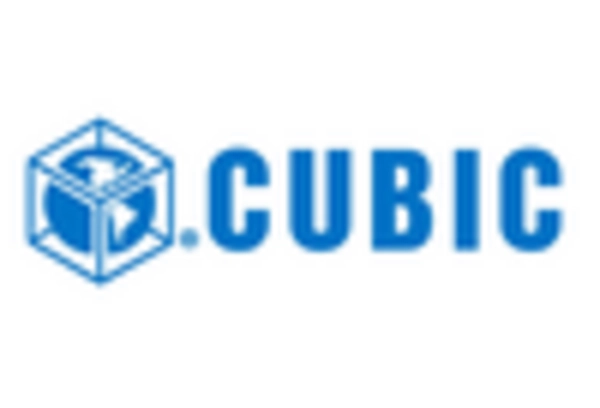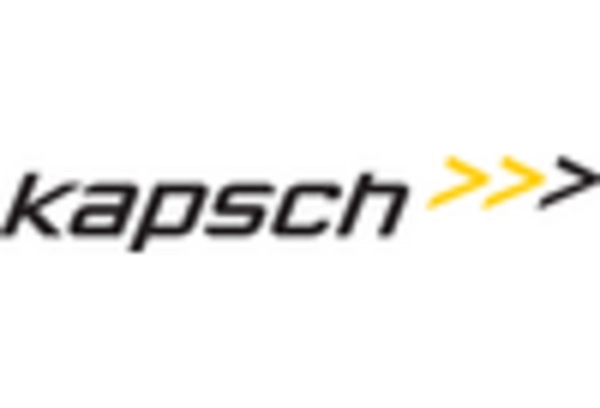Rising Urbanization
The increasing trend of urbanization is a pivotal driver for the Traffic Signal Controller Market. As more individuals migrate to urban areas, the demand for efficient traffic management systems escalates. Urban centers are experiencing heightened traffic congestion, necessitating advanced traffic signal controllers to optimize flow and reduce delays. According to recent data, urban populations are projected to reach 68% by 2050, intensifying the need for smart traffic solutions. This surge in urbanization compels municipalities to invest in modern traffic signal systems, thereby propelling the traffic signal controller industry forward. Furthermore, the integration of intelligent transportation systems within urban planning is likely to enhance the functionality of traffic signal controllers, making them indispensable in managing the complexities of urban traffic.
Technological Advancements
Technological advancements play a crucial role in shaping the Traffic Signal Controller Market. Innovations such as adaptive traffic signal control systems, which adjust signal timings based on real-time traffic conditions, are gaining traction. These systems utilize data analytics and machine learning algorithms to enhance traffic flow and minimize congestion. The market for intelligent traffic management solutions is expected to grow significantly, with estimates suggesting a compound annual growth rate of over 10% in the coming years. Additionally, the integration of Internet of Things (IoT) technology into traffic signal controllers allows for improved communication between vehicles and infrastructure, further optimizing traffic management. As cities increasingly adopt these technologies, the Traffic Control System Market is likely to witness substantial growth, driven by the demand for smarter, more efficient traffic solutions.
Growing Focus on Road Safety
The growing focus on road safety is a significant driver for the Traffic Signal Controller Market. With rising concerns over traffic accidents and fatalities, there is an urgent need for effective traffic management solutions. Traffic signal controllers are essential in regulating vehicle and pedestrian movement, thereby enhancing safety at intersections. Recent statistics indicate that traffic-related deaths remain a pressing issue, prompting authorities to seek advanced solutions to mitigate risks. The implementation of smart traffic signal systems, which can adapt to real-time conditions, is likely to contribute to improved road safety outcomes. As public awareness of road safety increases, the demand for sophisticated traffic signal controllers is expected to rise, further propelling the Traffic Signal Controller Industry.
Environmental Sustainability Goals
Environmental sustainability goals are increasingly influencing the Traffic Signal Controller Market. As cities strive to reduce their carbon footprints, there is a growing emphasis on implementing traffic management systems that promote eco-friendly practices. Traffic signal controllers that optimize traffic flow can significantly decrease vehicle emissions by minimizing idling times. Recent studies suggest that the adoption of intelligent traffic systems can lead to a reduction in greenhouse gas emissions by up to 30%. This alignment with sustainability objectives is prompting municipalities to invest in modern traffic signal solutions that not only enhance efficiency but also contribute to environmental goals. Consequently, the Traffic Signal Controller Sector is likely to experience growth as cities prioritize sustainable transportation initiatives.
Government Initiatives and Funding
Government initiatives and funding are instrumental in driving the Traffic Signal Controller Market. Many governments are prioritizing the modernization of transportation infrastructure to enhance safety and efficiency. This focus is reflected in various funding programs aimed at upgrading traffic management systems. For instance, recent reports indicate that several countries have allocated significant budgets for smart city projects, which include the implementation of advanced traffic signal controllers. These initiatives not only aim to improve traffic flow but also to reduce emissions and promote sustainable urban mobility. As governments continue to invest in these projects, the Traffic Signal Controller Landscape is expected to benefit from increased demand for innovative traffic solutions that align with national transportation goals.


